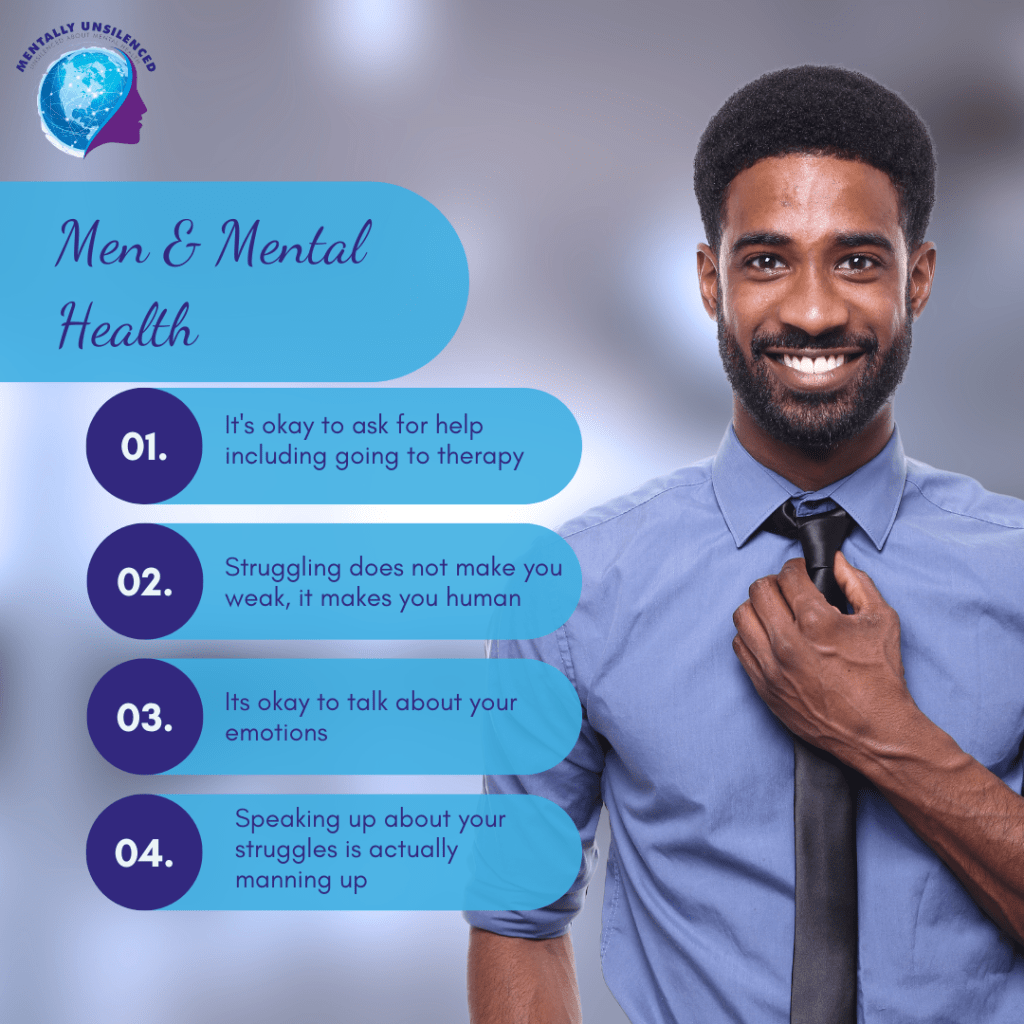
The Kenya Human Rights Commission (KHRC) recorded 1442 suicides in Kenya between 2015 and 2018 while crime statistics from the country’s National Police Service reveal that suicide is only second to murder in the homicide category. The Kenya Mental Health Taskforce report indicated that men were four more times likely to die by suicide than women. Research is indicating that more men go missing than women, that fewer men seek psychological therapies, that men consist of a majority of rough sleepers and that more men end up in prison as opposed to their female counterparts.
The World Health Organization (WHO) reports that globally more than 300 million people suffer from depression, 10% of whom are men. The report further indicates that globally 19% of men suffer from anxiety disorders compared to only 14% of women. There are many studies that indicate that men are less likely to seek treatment for their mental health issues. A UK study found that men are 40% less likely to seek professional help for their mental health issues. A US study found that women were twice as likely as men to have had a mental health issue and three times as likely to have had a substance use issue.
The issue of men not talking about their mental health can be attributed to a range of factors including; The current gender stereotypes in society that depict men as strong and unemotional. Many men who suffer from mental health issues report feeling embarrassed or ashamed to seek help. The stigma attached to mental health issues like depression and anxiety. In many societies, these conditions are still considered a sign of weakness and something to be ashamed of. This is especially true if the person is a man.
Men who suffer from depression or anxiety will often engage in self-destructive activities such as drinking, drug use, and binge eating. Men are less likely to be open about their feelings and more likely to engage in self-destructive behaviours. Men who suffer from depression or anxiety are more likely to engage in risk-taking behaviours like reckless driving, risky sexual encounters, and reckless behaviours at work.
Men who suffer from depression and anxiety are more likely to die by suicide. Suicide is the leading cause of death for men between the ages of 15 and 49 years. A recent study in Kenya found that nearly one in five Kenyans contemplated suicide because of financial distress. Many men who suffer from depression or anxiety and who do not have a support system for their mental health issues may decide to end their lives as a way out of their pain.
The fact that more men are dying by suicide than women points to the need for men to feel more comfortable talking about their mental health issues and seeking professional help. The tragedy, however, is that the men who could most benefit from suicide prevention programmes, treatment and support are the least likely to seek help. Men who are suffering from depression or anxiety and who are not getting the help they need are at high risk of their mental health issues escalating into something more serious. If men feel reluctant to talk about their mental health issues, we need to create an environment where they feel safe and comfortable doing so.
It is important that as a society we create a help-seeking culture amongst men. Socioeconomic issues have driven men to suicide more often than not. As we continue to celebrate men’s mental health month, let us keep in mind that there is hope and there is help. I have struggled with depression and got to even attempt suicide. I hope this will inspire you as you begin your recovery journey. Ever since my diagnosis, I have had good and bad moments but I have never gone back to a period like the 12 years before I got help. It is okay to go for therapy as a man, it is okay to take medication for your mental health as a man.
If you are in Kenya and are experiencing thoughts of suicide here are some contacts you or your loved ones can use.
1. Centre for Suicide Research & Intervention +254 703 388 130, http://www.csricentre.org
2. Be Frienders Kenya +254 717 234 621
3. PDO KENYA +254 774 354618, http://www.pdokenya.org
Yours Truly,
Mentally Unsilenced.
https://www.facebook.com/unsilencedmentally/
https://www.instagram.com/unsilencedmentally/
https://www.twitter.com/Munsilenced/
https://twitter.com/Munsilenced/
Leave a Reply